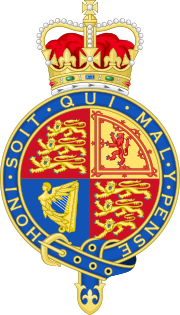Local Prohibitions case
| Local Prohibition Case | |
|---|---|
 |
|
| Court | Judicial Committee of the Privy Council |
| Full case name | The Attorney General for Ontario v The Attorney General for the Dominion of Canada, and the Distillers and Brewers’ Association of Ontario |
| Decided | 9 May 1896 |
| Citation(s) | [1896] UKPC 20, [1896] AC 348 |
| Case history | |
| Appealed from | Supreme Court of Canada |
| Court membership | |
| Judges sitting | The Lord Chancellor, Lord Herschell, Lord Watson, Lord Davey, Sir Richard Couch |
| Case opinions | |
| Decision by | Lord Watson |
Ontario (AG) v Canada (AG), also known as the Local Prohibition Case, is a famous Canadian constitutional decision by the Judicial Committee of the Privy Council, being one of the first cases to enunciate core principles of the federal peace, order and good government power.
In addition to the scheme provided by the Canada Temperance Act for prohibiting the sale of liquor, the Legislative Assembly of Ontario passed the Local Option Act that was virtually identically in content. In 1895, the Supreme Court of Canada issued two conflicting judgments on the matter:
In both cases, the majority opinions did not question the ability of the Parliament of Canada to enact legislation under its powers relating to peace, order and good government or trade and commerce.
Ontario appealed to the Privy Council, arguing that:
The Board ruled that:
Lord Watson held that the federal government's residual power allowed it to enact laws which "ought to be strictly confined to such matters as are unquestionably of Canadian interest and importance and ought not to trench upon provincial legislation with respect to any of the classes of subjects enumerated in section 92".
However, he was hesitant to apply that power, as it could potentially destroy the autonomy of the provinces. He speculated that:
If it were once conceded that the Parliament of Canada has authority to make laws applicable to the whole Dominion, in relation to matters which in each province are substantially of local or private interest, upon the assumption that these matters also concern the peace, order, and good government of the Dominion, there is hardly a subject enumerated in s. 92 upon which it might not legislate, to the exclusion of the provincial legislatures.
Lord Watson formulated a situation in which the residual power could be applied, in what would become known as the national dimensions doctrine.
Their Lordships do not doubt that some matters, in their origin local and provincial, might attain such dimensions as to affect the body politic of the Dominion, and to justify the Canadian Parliament in passing laws for their regulation or abolition in the interest of the Dominion. But great caution must be observed in distinguishing between that which is local or provincial, and therefore within the jurisdiction of the provincial legislatures, and that which has ceased to be merely local or provincial, and has become matter of national concern, in such sense as to bring it within the jurisdiction of the Parliament of Canada.
...
Wikipedia
